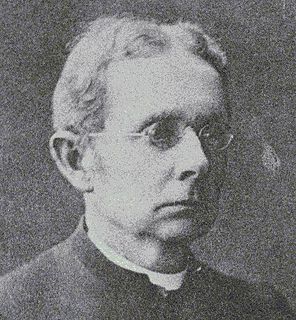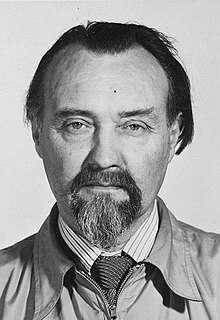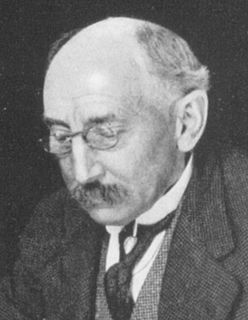 W
WThomas Blackburn was an English-born Australian entomologist who specialized in the study of beetles.
 W
WGeorge Francis Bornemissza was a Hungarian-born entomologist and ecologist. He studied science at the University of Budapest before obtaining his PhD in zoology at the University of Innsbruck in Austria in 1950. At the end of that year he emigrated to Australia. There he first worked in the Department of Zoology at the University of Western Australia for 3 years, before pursuing a career with the Commonwealth Scientific and Industrial Research Organisation (CSIRO). Bornemissza was known for his work on the Australian Dung Beetle Project (1965–1985) while working at CSIRO's Division of Entomology. He wrote scientific papers and books base on his research and contributed a collection of mounted beetle specimens to the Australian National Insect Collection and the Tasmanian Museum and Art Gallery. In 2001 he was awarded the Medal of the Order of Australia for his services to Australian entomology.
 W
WDonald Henry Colless, also known as Vale Don Colless or simply Don Colless, was an Australian entomologist. He was an authority on true flies (Diptera).
 W
WSilvester Diggles was an Australian artist and musician of British origin, as well as being a noted amateur ornithologist and entomologist.
 W
WAlexandre Arsène Girault was an American entomologist specializing in the study of chalcid wasps. An eccentric and controversial figure, Girault was also a prolific and dedicated entomologist. He published more than 325 papers and described over 3000 new taxa from Australia.
 W
WGeorge Hudleston Hurlstone Hardy was an entomologist who specialized in the biology of Diptera, especially Asilidae, Muscidae, Calliphoridae and Sarcophagidae.
 W
WArthur Mills Lea was an Australian entomologist.
 W
WMabel Josephine (Jo) Mackerras was an Australian zoologist, entomologist and parasitologist. Her research and life’s work contributed to entomology, veterinary medicine and medical science. Throughout her life she held a wide range of positions and duties that included Army medical officer, entomologist, medical scientist, and parasitologist. Mackerras was a major during WWII and served in the Army Malaria Research Unit. In an application for King’s Birthday Honours her work earned the citation,: "few women can have made a greater contribution to the Allied war effort".
 W
WElizabeth Nesta "Pat" Marks was an Australian entomologist who described 38 new mosquito species, as well as new species of fruit flies, bugs, cockroaches and ticks. She had a PhD in insect physiology from the University of Cambridge and was a member of the Royal Entomological Society of London.
 W
WArthur Sidney Olliff, was an Australian taxonomist who was active as Government entomologist in New South Wales. He came to Australia in December 1844 to work at the Australian Museum.
 W
WSergey Jacques Paramonov was a Ukrainian-Australian entomologist, specializing on flies (Diptera), of which described about 700 species and subspecies. Paramonov published over 185 scientific articles, some of which were published posthumously.
 W
WWilliam Joseph Rainbow (1856–1919) was an entomologist and arachnologist whose work includes the first catalogue of Australian spiders.
 W
WFrancis Noble Ratcliffe OBE was an Australian zoologist and conservationist.
 W
WAlexander Walker Scott was an Australian entomologist mainly interested in butterflies.
 W
WThomas Gibson Sloane was an Australian sheep grazier and entomologist, considered to be one of the pioneers in Australia's entomology field.
 W
WRobert "Robin" John Tillyard FRS was an English–Australian entomologist and geologist.
 W
WNorman Barnett Tindale AO was an Australian anthropologist, archaeologist, entomologist and ethnologist.
 W
WAlfred Jefferis Turner was a pediatrician and noted amateur entomologist. He was the son of missionary Frederick Storrs-Turner. He introduced the use of diphtheria antitoxin to Australia in 1895. He was known by the nickname "Gentle Annie".